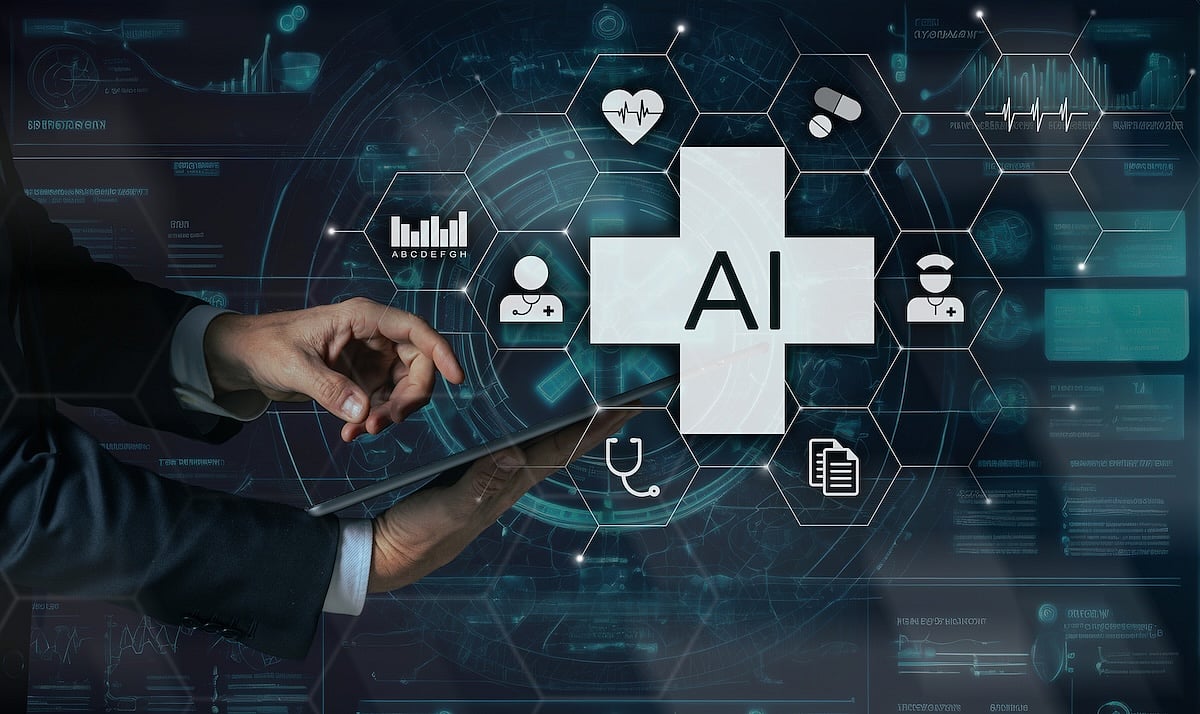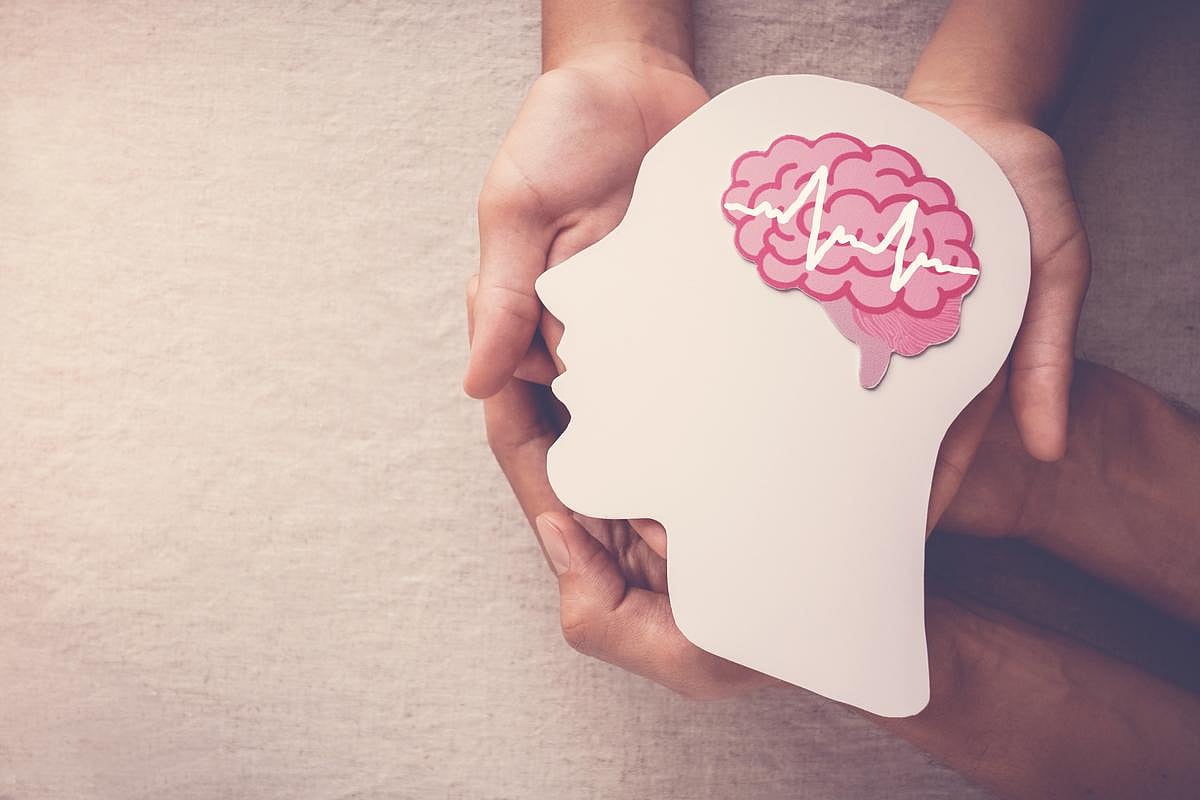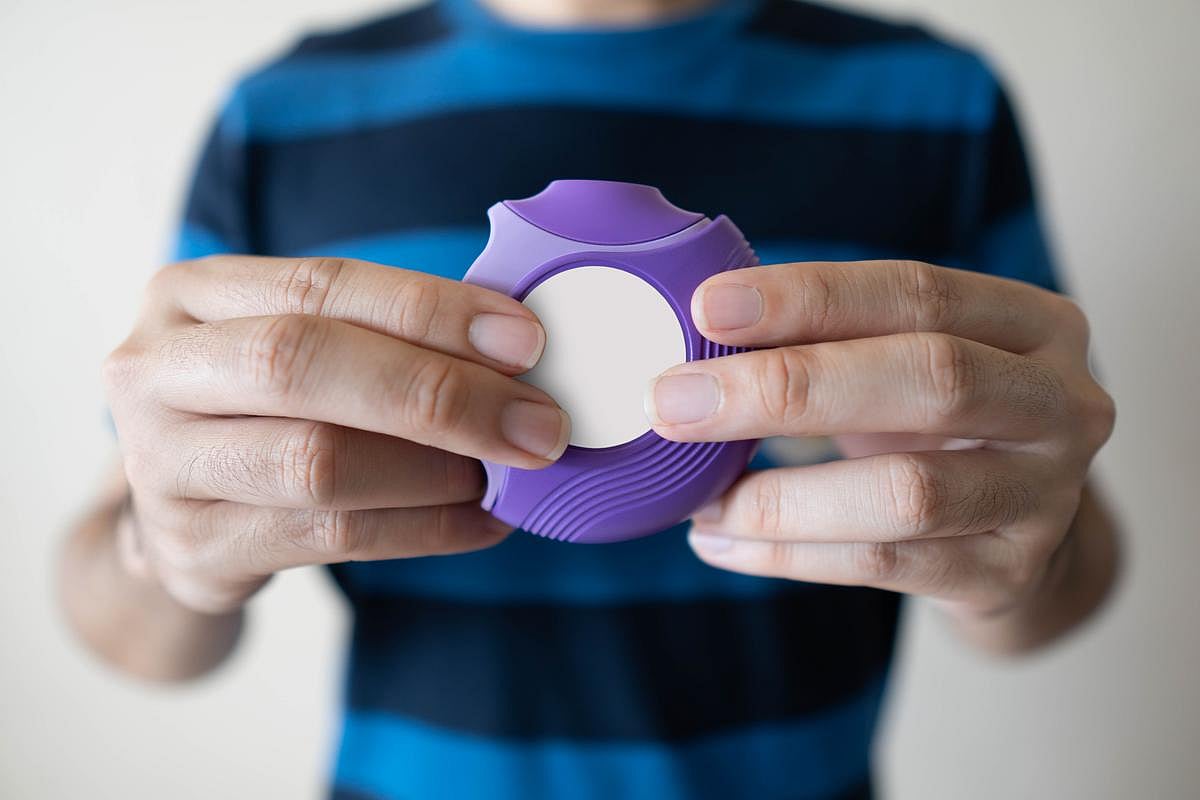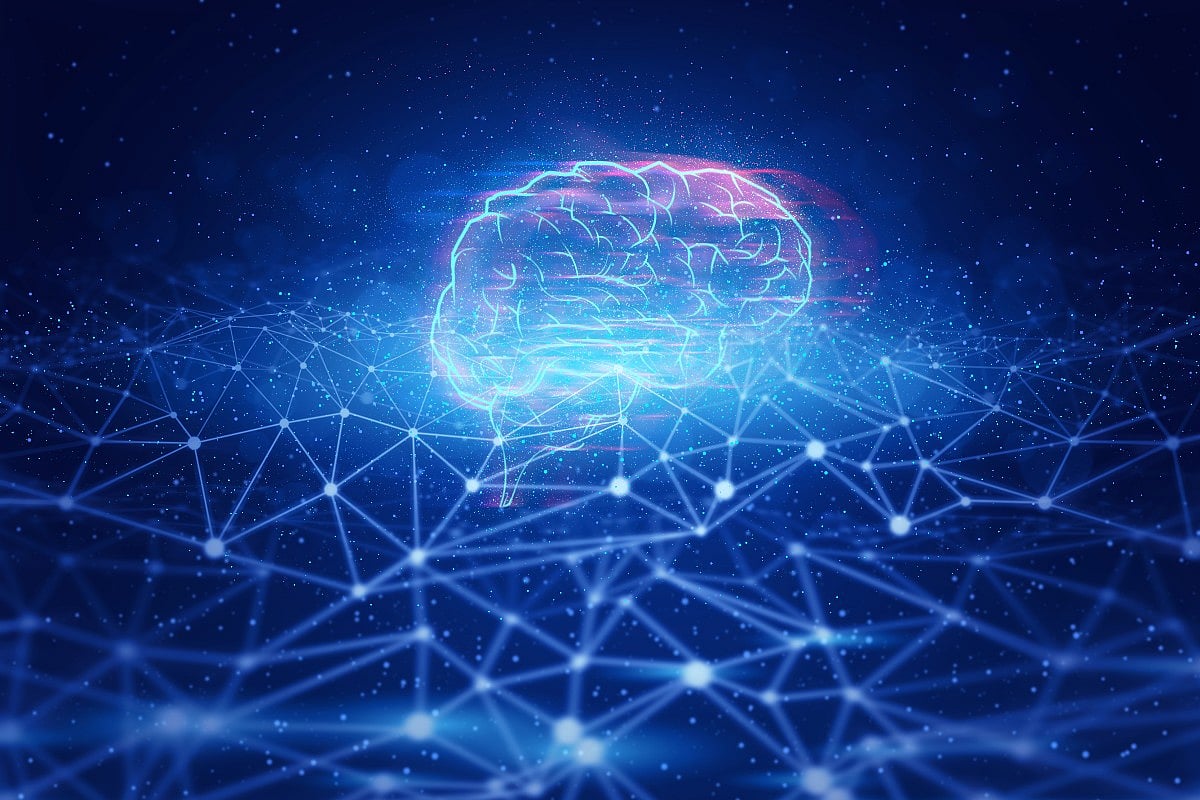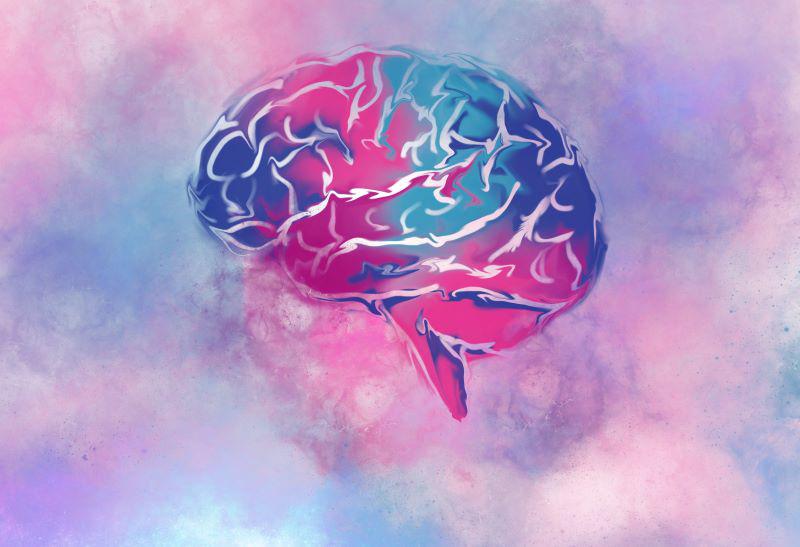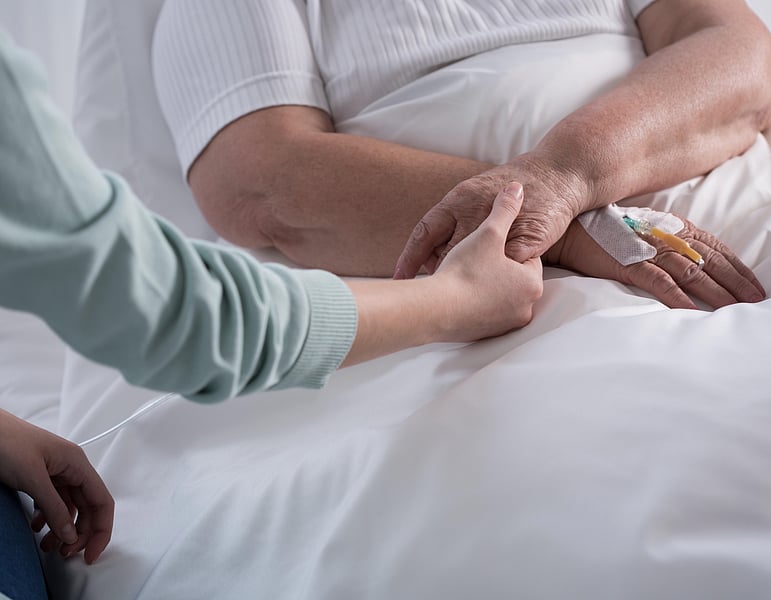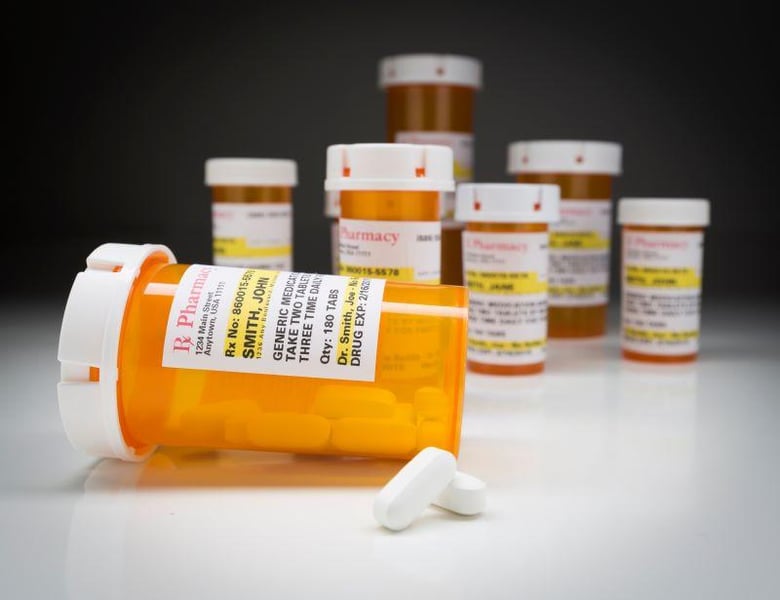Get Healthy!
Results for search "Epilepsy".
04 Feb
Diabetes During Pregnancy Linked to Higher Epilepsy Risk in Children
A new study finds children exposed to type 1, type 2 or gestational diabetes in the womb have a slightly increased risk of developing epilepsy.
08 Dec
Two New Studies Find Strong Link Between Epilepsy and Depression
Depression not only makes epilepsy harder to treat but may also raise the risk of developing it, new research finds.
Health News Results - 62
Artificial intelligence (AI) can help improve treatment of epilepsy by connecting the dots in complex cases, a new study says.
AI helped identify patients with drug-resistant epilepsy who might benefit from surgery, and it highlighted missing tests and evaluations that could better guide pa...
- Dennis Thompson HealthDay Reporter
- |
- December 10, 2025
- |
- Full Page
Fake clickbait TikTok videos about epilepsy treatments are receiving more views than accurate, evidence-based offerings, a new study says.
More than half of TikTok videos regarding epilepsy featured claims that were false, misleading and potentially harmful, researchers reported Friday at the annual meeting of the American Epilepsy Society in Atlanta.
“On TikTok, the videos th...
- Dennis Thompson HealthDay Reporter
- |
- December 8, 2025
- |
- Full Page
People with depression have a more than doubled risk of developing epilepsy, a new study says.
Worse, depression then makes epilepsy more difficult to treat, according to results ...
- Dennis Thompson HealthDay Reporter
- |
- December 8, 2025
- |
- Full Page
Alana “Lani” Silverberg was a real firecracker with a big personality at age 3 — until she started having seizures.
The sweetheart swiftly turned quiet, cranky, sleepless and fatigued, worn down by her seizures.
“It was every parent’s nightmare. Lani was having one large seizure a week. At one point, we didn’t know what else we were going to do,&r...
- Dennis Thompson HealthDay Reporter
- |
- November 17, 2025
- |
- Full Page
Military veterans who develop epilepsy following a traumatic brain injury might be more likely to die earlier than others with epilepsy.
However, their risk could depend on the cause of their brain injury, researchers reported Oct. 29 in the journal Neurology.
“We recommend that people who d...
- Dennis Thompson HealthDay Reporter
- |
- October 30, 2025
- |
- Full Page
For the estimated one-third of people with focal epilepsy who don’t respond well to initial medications, new research offers significant reason for optimism.
A study suggests that even those considered "treatment-resistant" may eventually see a substantial reduction in their seizures over time.
Roughly half of pregnant women with epilepsy see a neurologist while they’re expecting, an oversight that could put both mom and baby at risk, researchers say.
About 45% of women with epilepsy didn’t see a neurologist at all in the year leading up to delivery, researchers report...
- Dennis Thompson HealthDay Reporter
- |
- September 17, 2025
- |
- Full Page
It takes about a year for people with focal epilepsy to start finding some relief from anti-seizure medications, a new study says.
In all, 3 of 5 epilepsy patients (60%) do achieve freedom from seizures thanks to a drug regimen – but it takes most an average of 12 months to reach that...
- Dennis Thompson HealthDay Reporter
- |
- August 26, 2025
- |
- Full Page
An under-the-scalp implant can improve monitoring of a person’s epilepsy, giving doctors data they need to improve control over seizures, a new pilot study says.
Epilepsy patients must now keep a diary to track their symptoms.
But these self-observations are only right about half the time, researchers found when they compared patients’ diaries to tens of thousands of hou...
- Dennis Thompson HealthDay Reporter
- |
- August 14, 2025
- |
- Full Page
Children and young adults formerly covered by Medicaid are losing access to medications needed to control conditions like depression, schizophrenia, ADHD, asthma and epilepsy, a new study says.
You...
- HealthDay Reporter
- Dennis Thompson
- |
- May 12, 2025
- |
- Full Page
The cutting-edge weight-loss drug Ozempic/Wegovy can stop and even reverse fatty liver disease, a new clinical trial has found.
Nearly twice as many people taking semaglutide stopped their fatty liver disease without further scarring of the orga...
- HealthDay Reporter
- Dennis Thompson
- |
- May 1, 2025
- |
- Full Page
The first sign of seizures for Amanda Bradbury were auras in her vision that cropped up around age 19.
Then came frequent bouts of anxiety, struggling to maintain focus and follow conversations, forgetting things, and having difficulty speaking or even swallowing.
“One of the things that would happen before a seizure is I'd get an intense feeling of fear, which I now realize w...
- HealthDay Reporter
- Dennis Thompson
- |
- March 26, 2025
- |
- Full Page
Artificial intelligence (AI) might help treat childhood epilepsy by detecting brain abnormalities that are causing kids’ seizures, a new study suggests.
The AI tool, called MELD Graph, found 64% of brain lesions linked to epilepsy that human radiologists had previously missed, researchers report in JAMA...
- HealthDay Reporter
- Dennis Thompson
- |
- February 27, 2025
- |
- Full Page
A baby’s seizure in a neonatal ICU could be a red flag for future risk of epilepsy.
Newborns who suffer seizures following birth are more likely to develop epilepsy in childhood and young adulthood, a
Some people develop epilepsy after surviving a stroke, as the injury they’ve sustained causes scarring and disorganized electrical activity in their brains.
But one type of blood pressure medication seems to help stroke survivors avoid post-stroke epilepsy (PSE), according to a first-of-its-kind study prese...
- HealthDay Reporter
- Dennis Thompson
- |
- December 9, 2024
- |
- Full Page
Many women with epilepsy who are of childbearing age might not realize their anti-seizure drugs can raise the risk of birth defects or dampen the effectiveness of their birth control, a new study warns.
Likewise, some birth control methods can cause anti-seizure meds to be les...
- HealthDay Reporter
- Dennis Thompson
- |
- December 6, 2024
- |
- Full Page
For decades, it's been known that certain older medications women use to control epilepsy seizures can pose risks to a fetus.
However, data now suggests that no such risk exists for newer-generation anti-seizure meds.
“We need to balance making sure there is enough medicine on board to protect the mother and her developing fetus from seizures, but not too much where we'...
- HealthDay Reporter
- Ernie Mundell
- |
- December 2, 2024
- |
- Full Page
Would-be dads don’t have to worry that taking the epilepsy drug valproate will result in children with birth defects, a new review concludes.
Valproate, an anti-seizure drug, is known to cause birth defects and developmental disorders when taken by pregnant women.
B...
- HealthDay Reporter
- Dennis Thompson
- |
- September 20, 2024
- |
- Full Page
The risk of seizures within the next 24 hours can be predicted by watching for abnormal brain activity patterns in people with epilepsy, a new study finds.
The storm of brain activity that characterized a seizure is presaged by abnormal communication between specific areas of the brain, researchers discovered.
They say they can forecast seizure risk by analyzing just 90 seconds of t...
- HealthDay Reporter
- Dennis Thompson
- |
- July 22, 2024
- |
- Full Page
Specific steps can be taken to reduce the risk of potentially fatal reactions to anti-seizure medications, researchers report in a new review.
Performing blood tests, asking patients about risk factors and modifying dosages all can reduce reaction risk for drugs that millions of Americans take for
A class of blood pressure medications appears to also help lower seniors' risk of developing epilepsy, a new study finds.
The drugs, called angiotensin receptor blockers (ARBs), might prevent epilepsy in people at highest risk of the disease, researchers reported June 17 in the...
- HealthDay Reporter
- Dennis Thompson
- |
- June 20, 2024
- |
- Full Page
Newer epilepsy drugs taken while pregnant won't affect the creative thinking of children, an effect that had been observed in older medications, a new study reports.
Researchers found no difference in creativity scores at age 4 between kids of mothers with epilepsy and those of...
- HealthDay Reporter
- Dennis Thompson
- |
- May 30, 2024
- |
- Full Page
Climate change is likely to make brain conditions like stroke, migraine, Alzheimer's disease, epilepsy and multiple sclerosis even worse, a new review warns.
The potential effects of a changing climate is likely to be substantial on a range of neurological conditions, researche...
- HealthDay Reporter
- Dennis Thompson
- |
- May 16, 2024
- |
- Full Page
Two-thirds of kids who suffer a subtle type of epileptic seizure go undiagnosed when they seek emergency room treatment, new research shows.
"We do not know how many people are walking around with seizures that they are unaware of, and we are unaware of," said researcher Jacqueline French, a professor of neurology...
- HealthDay Reporter
- Lori Saxena
- |
- May 6, 2024
- |
- Full Page
Add one more damaging consequence of sleep apnea to the list: New research suggests it's related to late-life epilepsy.
Late-onset epilepsy is defined as seizures that tend to begin only after the age of 60.
The condition might be related to underlying heart or brain illnesses, noted study co-author Dr. Rebecca Gottesman, chie...
- HealthDay Reporter
- Ernie Mundell
- |
- May 2, 2024
- |
- Full Page
Some people with tough-to-treat epilepsy might benefit if doctors target a brain region newly linked to the disorder, a new study suggests.
Seizures declined by 83% after a patient underwent surgery that removed almost all of the fasciola cinereum, a previously overlooked regio...
- HealthDay Reporter
- Dennis Thompson
- |
- April 17, 2024
- |
- Full Page
A common antiseizure drug used to treat epilepsy, migraines and bipolar disorder does not appear to increase the risk of autism for kids exposed to it in the womb, a new study says.
Topiramate does not contribute to any ri...
- HealthDay Reporter
- Dennis Thompson
- |
- March 21, 2024
- |
- Full Page
Perhaps by reducing anxiety, a service dog can help reduce seizures in people with tough-to-treat epilepsy, a new study finds.
A group of 25 study participants had an average 31% fewer seizures after months of owning a service dog trained to help people with epilepsy.
And seven of those patients experienced a 50% to 100% reduction in seizures, researchers report in the Feb. 28 issue...
- HealthDay Reporter
- Dennis Thompson
- |
- February 29, 2024
- |
- Full Page
Neurologist Dr. Deborah Holder says she often has parents come to her with kids who've experienced what they call "funny spells."
"Sometimes I start talking to a parent and find out the parent has [also] had 'funny spells' for years, but had no idea they were epileptic seizures," said Holder, who practices at ...
- HealthDay Reporter
- Ernie Mundell
- |
- December 6, 2023
- |
- Full Page
People with epilepsy suffer quicker declines in thinking than people without the brain disorder, particularly if they also have risk factors like high blood pressure or diabetes, a new study finds.
The difference was significant: Over the course of the 14-year study, those with epilepsy experienced a 65% to 70% faster decline in memory and thinking skills.
On top of that, having ris...
- HealthDay Reporter
- Dennis Thompson
- |
- December 5, 2023
- |
- Full Page
Black, Hispanic and low-income kids are less likely to receive surgery that can treat their drug-resistant epilepsy, a new study finds.
Researchers discovered that children on anti-seizure drugs who received vagus nerve stimulation were 35% more likely to be alive after 10 years, and those who also had cranial surgery were 83% more likely to be alive.
But White children were much mo...
- HealthDay Reporter
- Dennis Thompson
- |
- December 5, 2023
- |
- Full Page
Teenagers with epilepsy are more likely to have an eating disorder than those not suffering from the brain disease, a new study shows.
About 8.4% of children ages 10 to 19 treated at a Boston epilepsy clinic had eating disorders, three times the national average of 2.7% of teens with an eating disorder, researchers found.
"Adolescents with epilepsy may feel a loss of control because...
- HealthDay Reporter
- Dennis Thompson
- |
- December 4, 2023
- |
- Full Page
A seizure doesn't always look like what you see in the movies, but a new survey finds most Americans don't know what the more subtle signs of seizures are.
"Anything that interrupts your brain's circuit can cause seizures, from tumors, infections and strokes to high or low blood sugar, or glucose levels, to inherited genetic features. And different types of seizures can present with dozen...
- HealthDay Reporter
- Cara Murez
- |
- November 2, 2023
- |
- Full Page
For people with tough-to-treat epilepsy, seizures can be both frightening and dangerous, but a new experimental pill may bring significant relief to over one-third of them.
Dubbed XEN1101, the new drug reduced the frequency of seizures by more than 50%, or even eliminated them, in some patients with focal epilepsy who did not respond to an average of six other drugs.
"I am predictin...
- HealthDay Reporter
- Steven Reinberg
- |
- October 10, 2023
- |
- Full Page
Before learning they had epilepsy, about 5% of people who have what's called focal epilepsy had a seizure while driving, new research suggests.
"Seizures while driving pose substantial risks for those experiencing them and for others on the road,"said study author Dr. Jacob Pellinen, of the University of C...
- HealthDay Reporter
- Cara Murez
- |
- June 9, 2023
- |
- Full Page
People with a genetic predisposition to Alzheimer's disease may have an increased risk of epilepsy, a new study says. And folks with a certain type of epilepsy may have higher odds of developing Alzheimer's disease.
Having Alzheimer's was linked to a 5.3% increased risk of generalized epilepsy, researchers report in the journal Neurology. This involves seizures that occur from b...
- HealthDay Reporter
- Cara Murez
- |
- May 25, 2023
- |
- Full Page
For people with epilepsy, living in lower-income neighborhoods is associated with worse mental functioning, new research suggests.
For the study, the researchers looked at the memory, thinking ability and mental health of people with epilepsy, and found differences based on where they lived. Brain-health issues were more common among those from disadvantaged areas with fewer educational a...
- HealthDay Reporter
- Cara Murez
- |
- April 20, 2023
- |
- Full Page
Many adults with epilepsy have agoraphobia, or a fear of public places, new research suggests.
That impacts quality of life and is something doctors should include in other screening that looks for anxiety or depression, the investigators said.
"We know that agoraphobia can lead to delays in patient care because of a reluctance to go out in public, which includes appointments with ...
- HealthDay Reporter
- Cara Murez
- |
- January 30, 2023
- |
- Full Page
American adults who have epilepsy and are Black or Hispanic are less likely than white adults to be prescribed the latest medications, according to new research.
"While finding the right medication is often a trial-and-error process that is based on the individual, studies have shown that use of newer medications improves outcomes, and some newer medications have fewer side effects,"said ...
- HealthDay Reporter
- Cara Murez
- |
- January 12, 2023
- |
- Full Page
Growing numbers of Americans are suffering prolonged, life-threatening seizures known as status epilepticus, and Black people are nearly twice as likely to experience these seizures as white people.
These are the main findings from new research looking at hospitalizations for status epilepticus from 2010 to 2019 across the United States. Status epilepticus refers to ...
- HealthDay Reporter
- Denise Mann
- |
- December 5, 2022
- |
- Full Page
Seizures tend to get progressively worse over time in people with epilepsy, and a new study in mice suggests why that might be the case.
Seizures appear to prompt the brains of mice to produce more myelin, the insulating layer around nerve cells, researchers from Stanford University found.
This essentially rewires the brain, creating a vicious cycle in which more seizures cause more...
- HealthDay Reporter
- Dennis Thompson
- |
- December 5, 2022
- |
- Full Page
Dementia patients who suffer from seizures tend to decline faster and die younger, according to a new study that urges caregivers to watch for these sudden brain changes.
"Our hope is that controlling seizures by prescribing antiseizure medications to these patients will slow down the progression of cognitive impairment," said
Costs for epilepsy medications in the United States are skyrocketing, outpacing inflation and straining federal insurers Medicare and Medicaid, according to new research.
Spending on antiseizure medications more than doubled in eight years for the government insurers, largely because of third-generation and brand-name drugs, the study found.
"While it's very important that Medicare ...
- HealthDay Reporter
- Cara Murez
- |
- December 2, 2022
- |
- Full Page
A bout of COVID-19, even a milder one, may raise the risk of having a seizure in the next six months, a large new study suggests.
Researchers found that of over 300,000 Americans who had suffered a case of COVID-19 or the flu, COVID sufferers were 55% more likely to be diagnosed with a seizure or epilepsy in the next six months.
And a deeper look showed that the increased risk was a...
- HealthDay Reporter
- Amy Norton
- |
- November 17, 2022
- |
- Full Page
Weight-loss surgery can change a person's life and health, but new research warns it might also come with a slight risk of developing epilepsy.
People who had the surgery had a 45% relative increased risk of developing epilepsy, compared with people who did not have the surgery. Moreover, those who suffered a stroke aft...
- HealthDay Reporter
- Steven Reinberg
- |
- September 29, 2022
- |
- Full Page
Folic acid, a B vitamin that's used widely to fortify foods and lower the risk of birth defects, may carry a hidden risk for those who have to take huge quantities of it: A new study shows those folks were more likely to get COVID-19 and to die from it.
"We examined whether COVID-19 diagnosis and death were related to the large doses of folic acid -- five times the safe upper limit -- pre...
- HealthDay Reporter
- Sydney Murphy
- |
- September 6, 2022
- |
- Full Page
Pregnant women with epilepsy battle anxiety and depression more often than their peers who aren't pregnant or don't have epilepsy, a new study reveals.
"The good news is we did not find that pregnant women with epilepsy were any more likely to have episodes of major depression than the other two groups," said st...
- HealthDay Reporter
- Cara Murez
- |
- August 18, 2022
- |
- Full Page
Managing epilepsy is an increasingly expensive process in the United States, with prices of brand-name anti-seizure drugs nearly quadrupling over eight years, a new study finds.
From 2010 to 2018, the cost of brand-named epilepsy drugs, including meds like Vimpat (lacosamide), rose 277% overall, researchers found. Over the same period, the cost of generic drugs dropped 42%.
"We as ...
- HealthDay Reporter
- Steven Reinberg
- |
- June 16, 2022
- |
- Full Page
There's good news for women with a mental health condition: Taking antidepressants early in pregnancy doesn't increase a baby's risk of having epilepsy or seizures, researchers say.
"The findings of this study are very important," said study co-author Ayesha Sujan of Indiana University Bloomington. "Pregnancy can be a trying time, and the addition of
